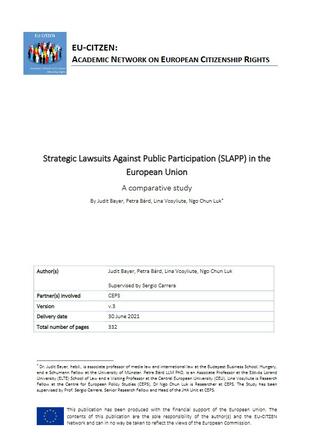
The study builds on the results of a previous, preliminary paper by the same research team.
The researchers used a three-step data collection methodology:
1) a preliminary survey from civil society to map the major issues across the EU,
2) qualitative expert country notes produced by a network of academics and legal practitioners covering all 27 EU Member States
3) a focus group discussion to identify solutions at the EU level to the most complex issues.
The study confirms that SLAPPs can affect the foundations of European integration and values enshrined in Article 2 TEU, such as fundamental rights, democracy, and the rule of law, as the main objective of SLAPPs is to create a chilling effect on a speaker criticising an applicant.
Tags: SLAPPThe content of this article can be used according to the terms of Creative Commons: Attribution-NonCommercial 4.0 International (CC BY-NC 4.0) . To do so use the the wording "this article was originally published on the Resource Centre on Media Freedom in Europe" including a direct active link to the original article page.

